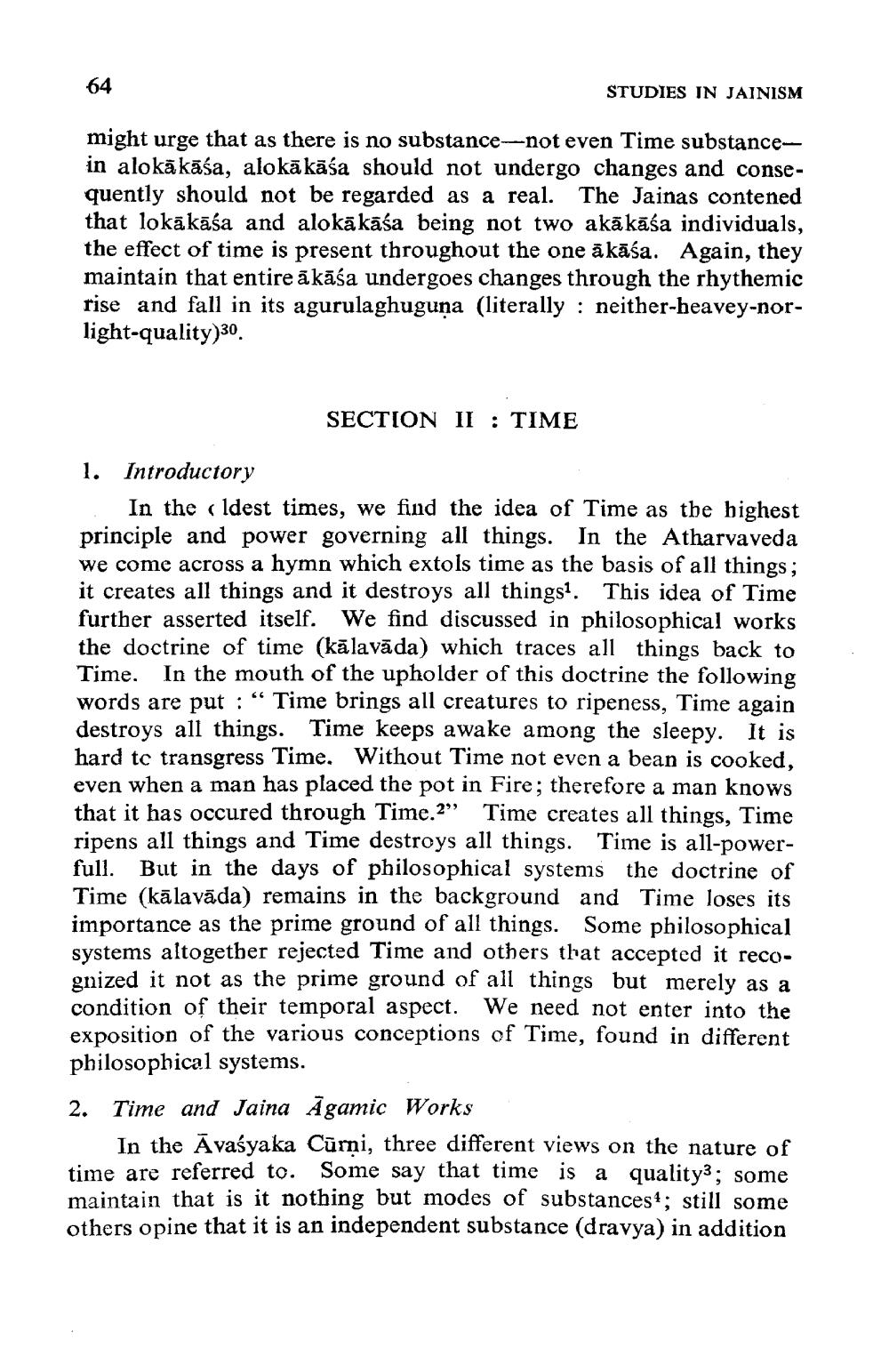________________
64
STUDIES IN JAINISM
might urge that as there is no substance--not even Time substancein alokā kāśa, alokākāśa should not undergo changes and consequently should not be regarded as a real. The Jainas contened that lokākāśa and alokākasa being not two akākāśa individuals, the effect of time is present throughout the one ākāśa. Again, they maintain that entire ākāśa undergoes changes through the rhythemic rise and fall in its agurulaghuguna (literally : neither-heavey-norlight-quality)30
SECTION II : TIME
1. Introductory
In the < ldest times, we find the idea of Time as the highest principle and power governing all things. In the Atharvaveda we come across a hymn which extols time as the basis of all things; it creates all things and it destroys all things. This idea of Time further asserted itself. We find discussed in philosophical works the doctrine of time (kālavāda) which traces all things back to Time. In the mouth of the upholder of this doctrine the following words are put : “ Time brings all creatures to ripeness, Time again destroys all things. Time keeps awake among the sleepy. It is hard to transgress Time. Without Time not even a bean is cooked, even when a man has placed the pot in Fire; therefore a man knows that it has occured through Time.2" Time creates all things, Time ripens all things and Time destroys all things. Time is all-powerfull. But in the days of philosophical systems the doctrine of Time (kālavāda) remains in the background and Time loses its importance as the prime ground of all things. Some philosophical systems altogether rejected Time and others that accepted it recognized it not as the prime ground of all things but merely as a condition of their temporal aspect. We need not enter into the exposition of the various conceptions of Time, found in different philosophical systems. 2. Time and Jaina Āgamic Works
In the Āvaśyaka Cūrņi, three different views on the nature of time are referred to. Some say that time is a quality3; some maintain that is it nothing but modes of substancest; still some others opine that it is an independent substance (dravya) in addition




